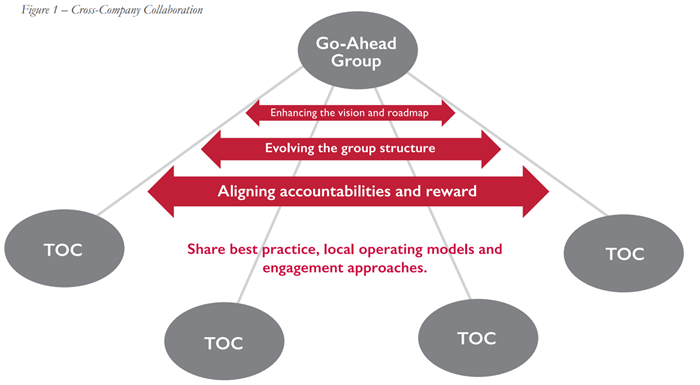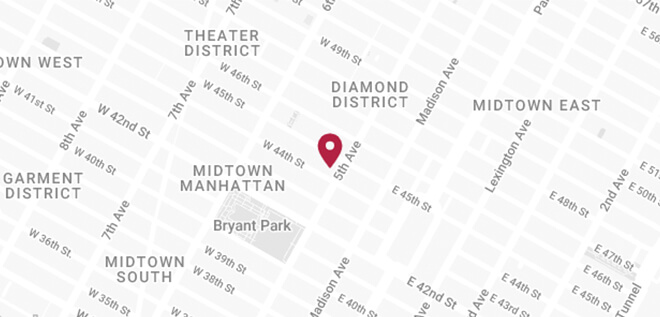Go-Ahead is the UK’s leading provider of passenger transport and delivers over one billion journeys a year on its bus and train services with annual revenues of c£3.9bn. Its rail operation is the busiest in the UK, responsible for around 35% of all train passenger journeys. They are also the largest operator of bus services in London, running around a quarter of London’s buses.
Go-Ahead Group operates a devolved group structure with their bus and train operating companies running autonomously. This approach brings benefits enabling franchises to keep a community feel, retaining local expertise and local branding. The insight local knowledge brings allows management to respond directly to the needs of customers and adapt quickly to changing conditions in local markets. The strength of local brand devolution facilitates sustainable change, through minimising the loss of expertise and continuous development that time-bound franchises might bring.
Sharing best practice across a devolved group structure can also bring benefits. So it was considered that greater collaboration across Go-Ahead’s operating companies would enable alignment to the Group strategy and business model. Strategic risks could be identified (or re-validated) through the discussion of threat and opportunities experienced at a local level. This knowledge sharing, at least in the first instance, would be most beneficial intra-modal (within one mode of transport) rather than inter-modal (between different modes).
Berkeley provided high quality end-to-end delivery. I didn’t need to babysit the engagement, yet I felt sufficiently in control of the overall direction. They very quickly tuned into the corporate culture and tailored the product in a way that gave it the best chance of gaining traction in the business.”
MANAGING DIRECTOR, RAIL DEVELOPMENT, GO-AHEAD GROUP
Collaboration across train operating companies
Berkeley was asked by the Managing Director of Rail Development at Go-Ahead Group to provide strategic advice to facilitate cross-collaboration across its diverse train operating companies (TOCs), some relatively recently acquired.
The diverse mix of rail acquisitions presented opportunities for sharing best practice, identifying commercial and customer service opportunities through cross-TOC collaboration and other benefits through developing a cross-rail business strategy.
We were engaged to work with the Group Executive and leadership from individual operating companies to identify and explore opportunities for a more joined up way to grow profitability and maximise performance of new franchises across operating companies.
Over a 12 week period, a Berkeley consultant led director-level workshops and interviews to identify a long-list of opportunities, rank and prioritise them based upon benefit and complexity, and then narrow them down to a set of opportunities for which further investment would be made available. We then worked with the senior executives to develop the business cases and roadmap for implementation.
By rapidly establishing credibility at the most senior levels and adopting a very collaborative approach, Berkeley built strong alignment between functional directors across several autonomous businesses. This resulted in strong agreement on ‘what’ to do and created the ownership and commitment needed to ‘make it happen’.
(See Figure 1) The Group CEO and CFO were able to use the wider operating model thinking at board level around:
- Enhancing the vision and roadmap
- Evolving the group structure
- Aligning accountabilities and reward.
A key outcome was the acceptance that aligning accountabilities and reward could encourage a better balance between operational delivery within individual businesses and support for the broader Group agenda.










